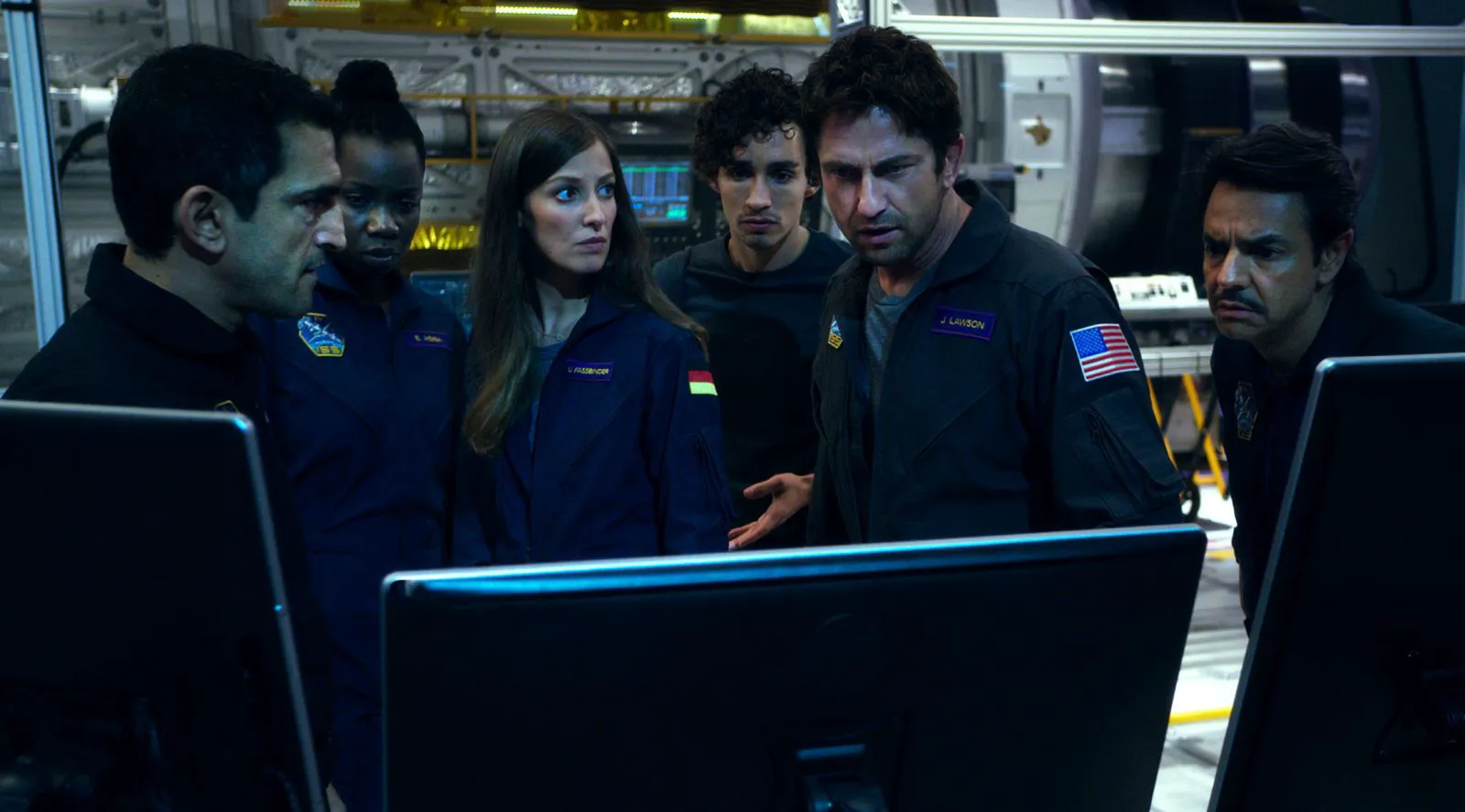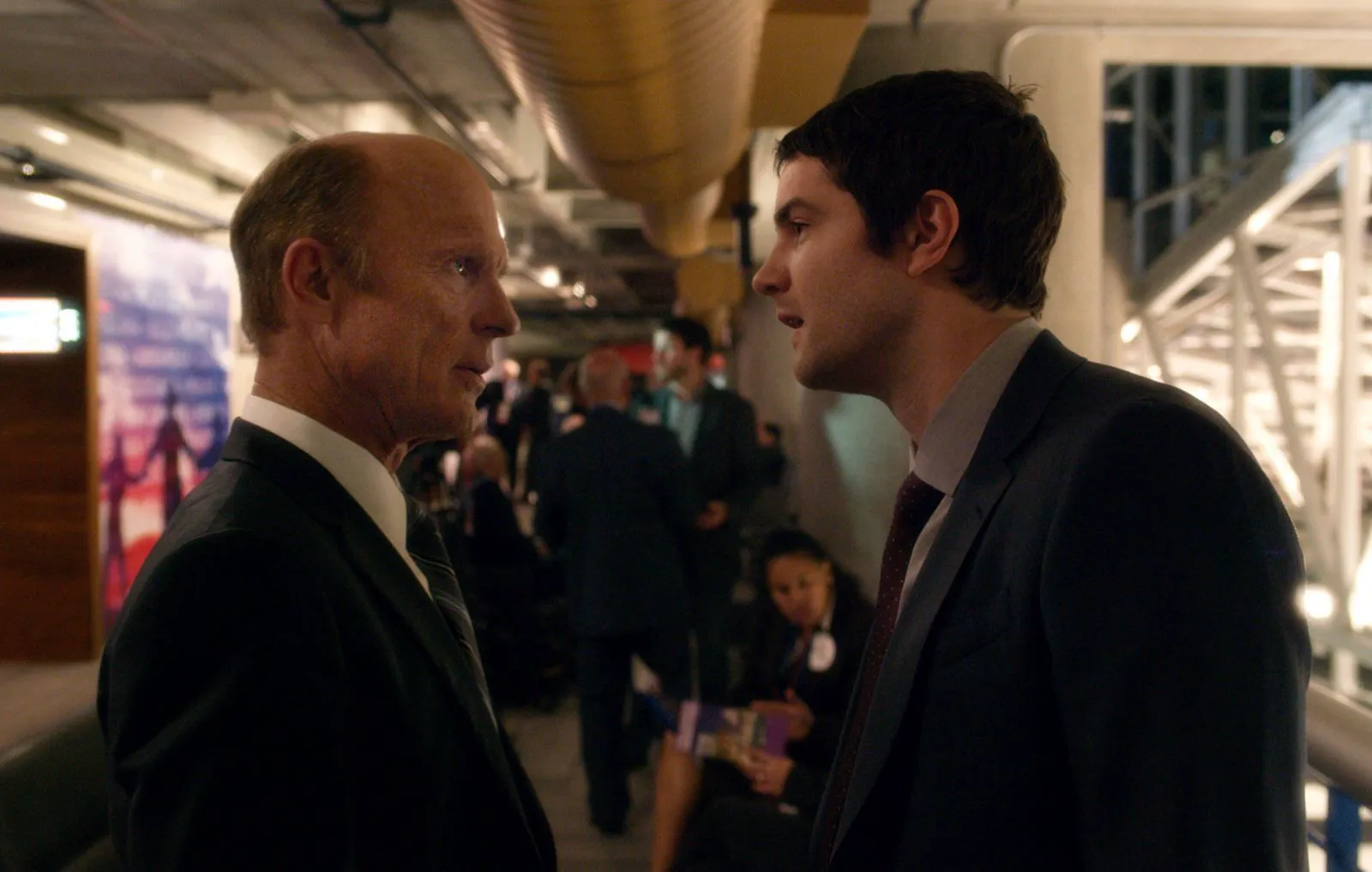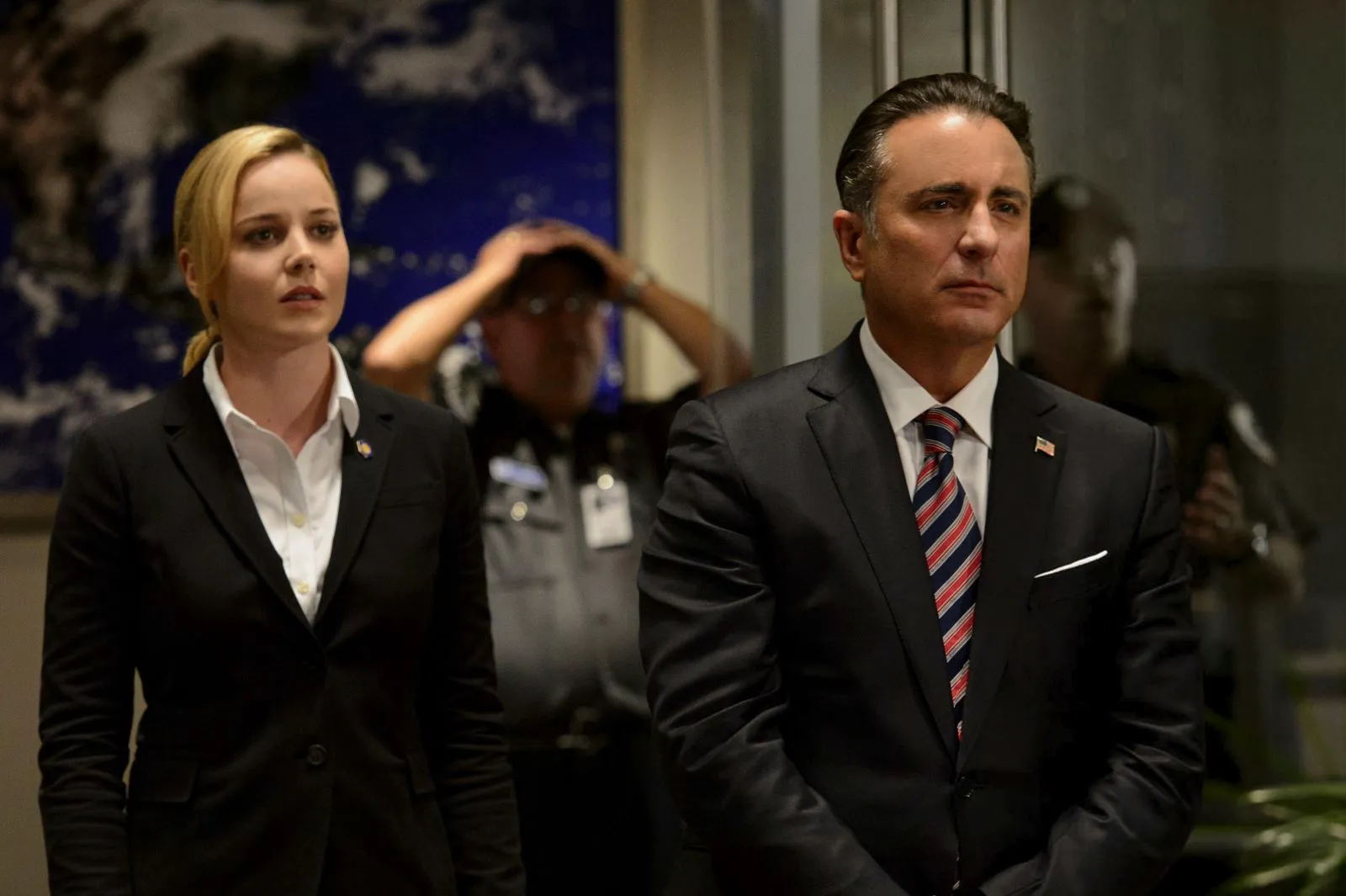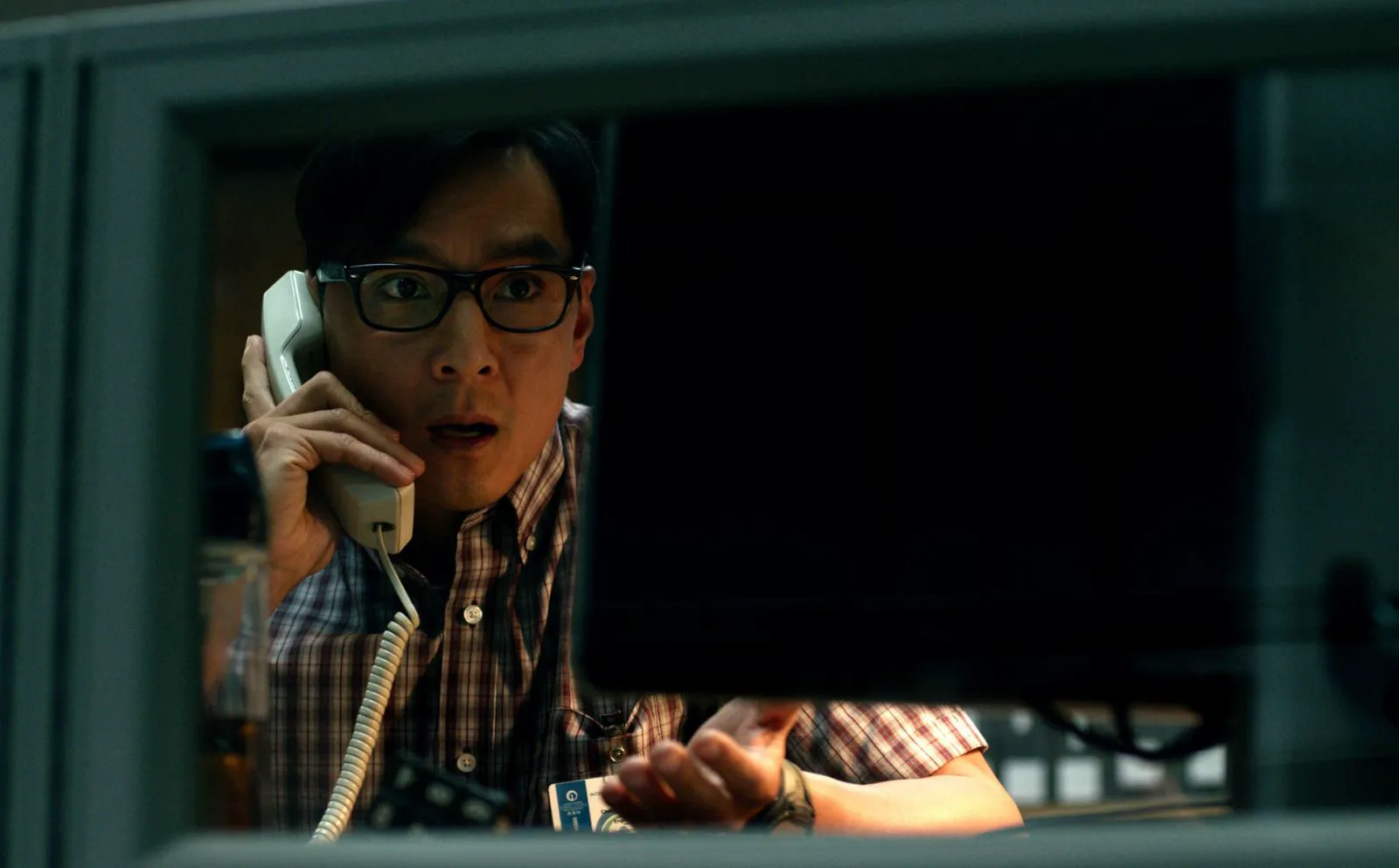A Hilariously Sad Waste of Money, Time, and Talent: A Review of “Geostorm”
This film is a painfully funny and tragic squandering of resources on a dreadful piece of work about climate weaponry.
In the not-so-distant future, after a series of natural disasters, an international coalition of scientists, engineers, and designers creates the “Dutch Boy” system of weather-controlling satellites. The world is freed from extreme heat, tornadoes, and tsunamis. However, within the weather management leadership, passions continue to boil, and Jake Lawson, the inventor of “Dutch Boy,” is suspended from the project due to his difficult personality. Some time later, the system experiences several failures that appear to be random incidents. However, Jake’s brother, Max, soon discovers that it is a sabotage aimed at the entire planet – someone wants to trigger natural anomalies that will lead to a geostorm, a global climate change on Earth. Only one person can deal with the hacking of “Dutch Boy” from the inside, so the government has to turn to the fearless but uncontrollable Jake Lawson for help.

During the final stages of production, Jerry Bruckheimer and his team were brought in to salvage the film. These “rescuers” cost an additional $15 million for two weeks of work.
Some films, like fine cognac, should sit on a shelf for a while, mature, and survive the initial hype before becoming timeless classics. Other films are good here and now – delaying their viewing is akin to death because life changes too rapidly today, changing the preferences and worldview of viewers. And then there’s the kind of cinema that is hopelessly late in appearing on screens, and neither brilliant actors, expensive special effects, nor impressive visuals can save it – it reeks of the dampness of a vault of unfulfilled hopes and wasted ambitions. Strictly speaking, no one had placed a dime on the success of “Geostorm,” Dean Devlin’s disaster film – there were too many problems in the way of this project’s realization. But the result surprised even the most ardent pessimists; such a film might have been interesting in the mid-2000s, but not later. Or better yet, it shouldn’t have existed at all.

A Catalogue of Clichés and Absurdities
The last remark sounds harsh, but there is every reason for it, as the characters of a popular Soviet TV film said: “This is some kind of disgrace.” “Geostorm,” with the persistence of a village idiot, collects all the “childhood diseases” that blockbusters since “Armageddon,” “The Core,” and “The Day After Tomorrow” have long outgrown and discarded as unnecessary. It’s painful (or funny, depending on your mood in the cinema) to watch Devlin’s film – it is one hundred percent made up of ridiculous clichés, silly fantasies, and a complete misunderstanding of the laws of nature and physics.

Listing the blunders and far-fetched assumptions of “Geostorm” could take a long time: there are impenetrable astronaut suits, a technical satellite with a small living module on board (just in case someone drops by?), explosions in space that have already become tiresome, a space station blazing with tons of kerosene, a stadium blown up by lightning as if it had been covered with tons of TNT, and a red-hot gas pipeline protruding from the ground. And there’s no point in even mentioning Afghanistan and Rio freezing in a split second. Roland Emmerich, a well-known master of depicting cataclysms on screen, is not nervously smoking on the sidelines, but rather laughing relaxedly at what is shown – against the background of “Geostorm,” any “2012” looks like a solid report at a scientific symposium.

A Conspiracy Plot Gone Wrong
But should we really scold it for this? After all, we knew we were going to watch a light-hearted nonsense about failed weather management. Okay, let’s put aside everything related to the “Dutch Boy” project and see what the actors are doing on screen and what the screenwriters have prepared for them. There’s no revelation to be expected here either. In essence, “Geostorm” is a conspiracy detective story about how someone in the US government wants to sabotage not so much the work of the weather station as its transfer into “foreign hands,” even though it was created by joint efforts. The tale is old and just as dull, since the motives for this sound more than absurd: the executor complains – attention! – about a small salary, and the client raves about America’s lost world domination. With such baggage, you need to look for allies in the mid-1980s.

During filming, members of the “Geostorm” crew, speaking anonymously to journalists, reported that Gerard Butler was completely unprepared for filming and did not know a single line of his character.
Lost in the Chaos
But what is even more frightening is that the actors in this setting of conspiracies, computer viruses, lightning, and explosions on the ISS look like lost children who have come to an adult party. Andy Garcia and Ed Harris don’t seem to understand where they are at all, Gerard Butler and Jim Sturgess play out such a dull conflict between brothers that it belongs in a kindergarten performance about two greedy bear cubs, and Sturgess solves personal problems with Abbie Cornish with the grace of an elephant and a hippopotamus – their “work is more important than feelings” line is nauseating. Alas, there is nothing to catch the eye in the background either; only Zazie Beetz, playing the role of a hacker, brings a small fraction of variety, and she gets both working jokes.
Embracing the Absurdity
But what the authors can be praised for is their completely selfless immersion in their own circus – “Geostorm” simply enjoys its own stupidity and exudes it to the fullest. There is no doubt here, no study of the subject, no slightest appeal to logic, only pure drive and bold throwing of money into the furnace. “Cut the last cucumber,” it turns out, applies not only to Russians. But it’s a little embarrassing and awkward to watch, and all that remains is to sigh and call out to Emmerich: “Come back, we forgave you ‘Independence Day 2’!”